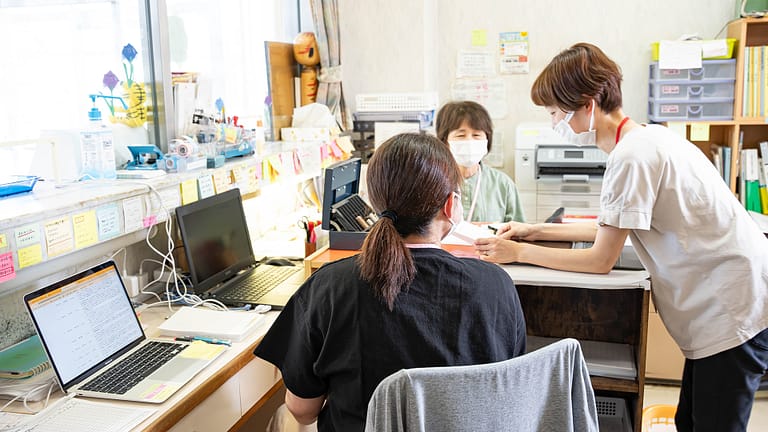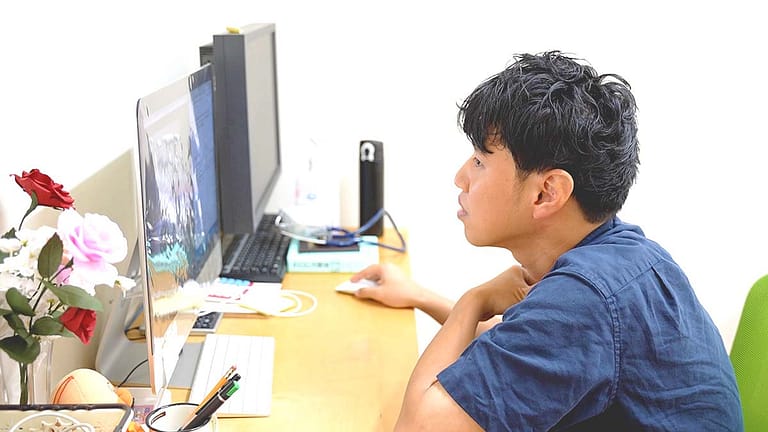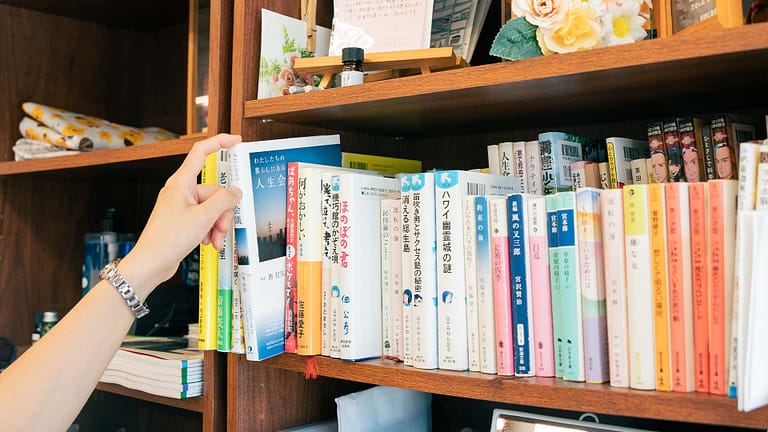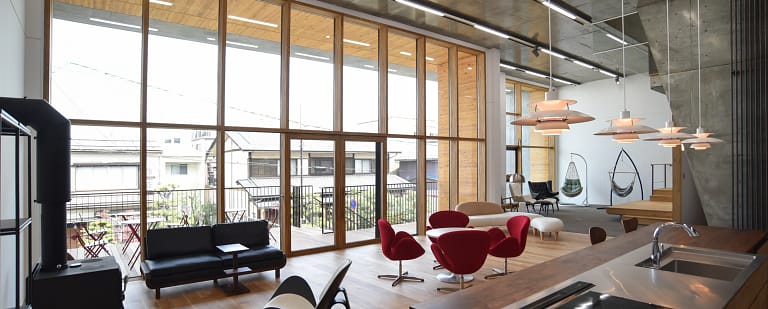- TOP
- 拠点紹介 / Locations & Offices
- オレンジホームケアクリニック / Orange Home Care Clinic
- オレンジキッズケアラボ / Orange Kid’s Care Lab.
- 保健室(新栄・宝永)/ Health-cultural center
- つながるクリニック / Tunagaru Clinic
- ほっちのロッヂ / Hotch no Lodge
- 勝山オレンジクリニック / Orange Clinic Katsuyama
- チェアラボ / Chiar lab.
- まあるカフェ / Maaru cafe
- みいつカフェ / Meets cafe
- ROOT×ROUTE / ROOT×ROUTE
- さくら荘 / さくらんぼ / Sakura-sou / Sakuranbo
- 法人概要 / Corporate Overview
- 各拠点の最新情報 / News
- お問い合わせ / Contact us
Specified skilled worker
特定技能外国人実習制度について
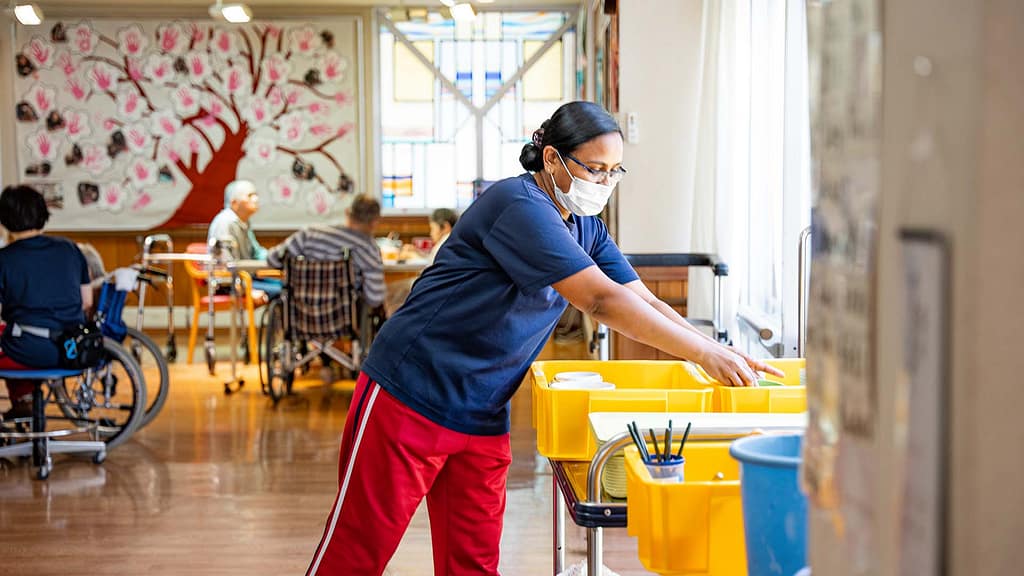
Greeting
現場の人員不足があることは事実ですが、単純に労働者としてインド人職員の受け入れを考えたわけではありません。
病気や障害をもったり、歳をとっても、その人の「暮らし」を大事にして、それを継続することで、生きるエネルギーが復活していくのを、私たちは日本の在宅医療やキッズケアの現場で体験してきました。それを、高齢者福祉にも活かしていきたい、そしてそれを世界に発信したい。そんな思いで今回のプロジェクトは動き始めました。
日本の高齢化はさらに進んでいきますが、団塊の世代が年齢を重ねてくるこれからの時代は、80歳ならこんな感じ、90歳ならこんなはず、というのは通用しません。だからこそ、これからの日本の高齢者福祉の現場にも理解や行動に多様性が求められます。
医療的ケア児を代表に、あらゆる障害を持つ人たちも、地域での暮らしを営んでいます。障害の種類を判断して整理して並べる、というような線引きのアプローチではなく、どんな障害があったとしても、その人の「生活者」の側面にスポットライトを当てる方が、幸せは連鎖します。
あらゆる人が、あたりまえに地域で暮らす。それが、これからの日本の地域の姿です。
インドに行ったときに感じたのは、国の若いエネルギーと、たくさんの人々が様々な宗教や言語や習慣を許容し合う雰囲気。
多様性の中に過ごしてきたメンバーが加わることで、きっと大きなエネルギーになると、確信しています。
日本はあるべき高齢社会像を見つけるのに少し寄り道をしてきました。仕方ありません、少子高齢化のダントツトップ、先頭を走っているのですから。
老後は、同じ状況の人たちばかりがいる場所で、ゆっくりお茶でも飲んでいるのが高齢者の幸せだ。という勘違いから、日本はたくさんの老人ホームを作ってきました。
しかし、老人ホームに入るより、暮らし慣れた場所にいたい、歳をとっても誰かの役にたっていたい、と考える高齢者の方が多かったのです。
だから、やるべきは施設づくりよりも、文化づくり・街づくり。今から高齢化に向かう国々に教えてあげたいですね。
インドは、今から3,40年かけて高齢化が進んでいきます。将来的に人口が17億人になると言われているインド。その時、数億人の高齢者が、それぞれの場所で、それぞれの役割を持って過ごし続けられる国になっていたら、日本の寄り道で得た教訓もとても役に立つと思うのです。
私たちオレンジグループはこんな思いを持って、特定技能外国人実習制度を使って共に働くあなたを心から歓迎し、一緒に活動していきましょう。
2023年8月
While it is true that there is a shortage of personnel on-site, we have not considered simply accepting Indian staff as workers.
Even if they are sick, disabled, or old, We have experienced in Japan’s home healthcare and children’s care facilities how people’s energy for living is revived when they cherish their “life” and continue to do so. We would like to apply this experience to the welfare of older adults and share it with the world. With this in mind, this project was set in motion.
Japan’s aging population will continue to advance, but in the coming age of the baby boomers, it will not be acceptable to say that if you are 80, this is how you feel, or if you are 90, this is how you should feel. That is why diversity in understanding and behavior is required in the field of welfare for older adults in Japan in the future.
People with all kinds of disabilities, represented by children with medical care, also live in the community. Happiness is more likely to be linked to the spotlight on the “life” aspect of people with all kinds of disabilities rather than the line-drawing approach of judging and sorting them into categories of disabilities.
Every person should live in the community as a matter of course. This is the future of Japan’s communities.
When I visited India, I felt the young energy of the country and the atmosphere in which many people tolerate each other’s various religions, languages, and customs.
Adding members who have spent time in diversity will surely bring great energy. Japan has taken a detour in finding the ideal image of an aging society. It can’t be helped; we are leading the pack regarding birthrate and the aging population.
Older adults are happy to spend their old age drinking tea, where only people are in the same situation. This misconception has led to the creation of many nursing homes in Japan.
However, many older adults would rather stay where they are used to living and be helpful to others than in a home for the aged.
Therefore, what we should do is not to build facilities but to create culture and towns. I would like to teach this to countries now facing aging populations.
India’s population will be aging over the next 3 to 4 decades. It is said that India will have a population of 1.7 billion in the future. At that time, if the country becomes a place where hundreds of millions of older adults can continue living in their places and roles, the lessons learned from Japan’s detour will be beneficial.
With these thoughts in mind, we at the Orange Group sincerely welcome you to work with us through the Specified Skilled Foreign Internship Program.

Corporate Overview
法人概要について
働き手
Staff
Staff
在宅医療について
In terms of home care
(JP only)
In terms of home care
(JP only)
これまでの道のり
Company’s History Timeline
And Key Milestones
Company’s History Timeline
And Key Milestones
特定技能外国人
実習制度について
Specified skilled worker
実習制度について
Specified skilled worker
法人ポリシー
Corporate Policy
Corporate Policy

